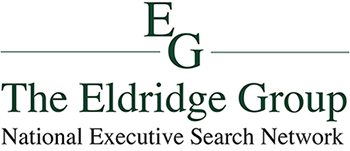The Interview Road Map
- Company Drug Test/Google
- Samples of Your Work
- Resume
- The Interview
- Cover Letter
- Follow-Up Email
- Dress for Success
- References
- Do Your Homework/Field Checks
- Resigning/Counteroffer
Given that most resumes get read for 3-5 seconds try not to go over two pages. If you do, and if you have been with some world class companies that don’t appear until the second page, list them in your summary up top on the first page in bold, because the reader may never get to the second page and see your IBM experience! Keep a permanent file of your achievements, no matter how inconsequential they may appear to be. This is the basis for a good resume. Give each of your references a copy of your resume. Never use your work email as most employers are watching and always bring 10 copies of your resume to your interview.
Content Guidelines
- After Education, you can include various seminars, classes and workshops that relate to your jobs.
- You can also list additional awards after education that were not included within the resume.
- Never have a resume that is only 1 1/3 pages, make it one or two pages and format it to use the full page, if possible. If you have been with some world class companies that don’t appear until the second page, list them up on top first.
- Update your resume as you approach completion of each assignment.
- Use “bullet” format where appropriate for accomplishments.
- Use conventional English. Stay away from multi-syllable words when a one- or two-syllable word is clearer.
- Use short paragraphs — preferably no longer than five lines.
- Make sure the resume and the cover letter are error free. Proofread and have others proofread for you, too.
- Include your significant contributions at each one of your jobs.
- Allow the most space for the positions that are most relevant.
- Summarize the technologies (hardware, software, databases, operating environments, etc.) you are familiar with where appropriate.
- List your activities with professional, trade and civic associations — but only if they are appropriate.
Demonstrate Success
While these employers may have different requirements for equivalent experience, a good rule of thumb is to demonstrate past performance and proven results in your previous work. To accomplish this, show how you either made money or saved money for your employer. From your past work experience, develop as many specific instances when you actually have done so. If you can attach a dollar value to your accomplishments, all the better! Here are some actual examples:
- Responsible for generating 13 new accounts by creating database and mailing piece
- Booked $150,000 in new business for 2007 by contracting with 2 major groups
- Increased revenue by 38% from new social market bookings
- Chaired meetings and headed the negotiation discussion that resulted in the settlement of a long protracted contractual and legal issue with the subcontractor and client
- Improved cash collection and debt aging from average 100 days to a more manageable 30 days and realized savings of about $276,000
- Reduced turnover by 45% over previous management within 15 months through my training program and development plans
- Won the Leadership and Excellence award in 2007 for outstanding achievements during my project management role
- Increased our customer satisfaction survey scores by 32% on average by training my team on the proper way to provide a great customer experience
- Reduced non-beneficial spending costs by 40% by effectively researching and analyzing accounts payable data
RESUME BUILDER
 Resume Outline
Resume Outline
 8 Resume Samples
8 Resume Samples

